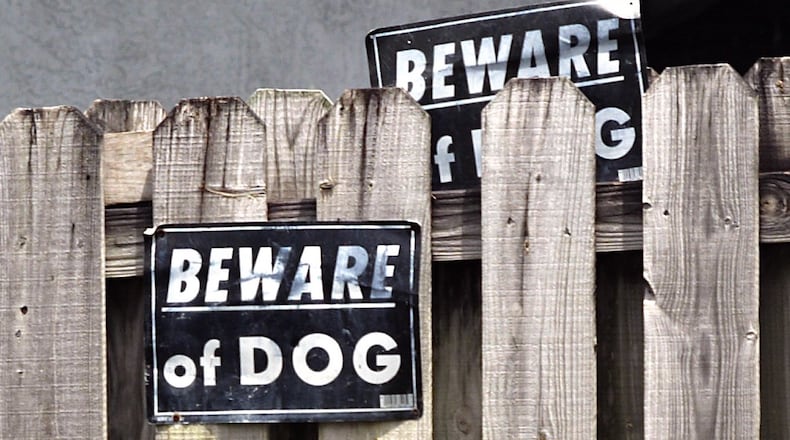“We have got to tell owners — whatever breed you have, if you have a dog that’s biting you can’t take that lightly,” said Rezabek.
The bills call for requiring investigation of every complaint call made to dog wardens, mandating that dog owners respond to warnings and postings from dog wardens, allowing witnesses to give sworn statements regarding problem dogs, increasing penalties for owners who fail to control their vicious dogs, requiring annual registration of dangerous dogs, extending a ban on dog ownership by violent felons or child abusers to five years and giving local authorities more discretion.
Rezabek said if a dog is provoked to attack, the owner must prove it. Currently, the law requires prosecutors to show there was no provocation in the attack.
“We want a good law that will protect the community,” Rezabek said.
Related: Lawmakers look to toughen Ohio’s vicious dog laws
The bills in the House and Senate are both named after Richey, who was fatally attacked by her neighbor’s mixed breed mastiffs on Feb. 7, 2014. Richey, 57, had called local authorities dozens of times to report concerns about the dogs in the two years leading up to her death.
Klonda Richey bills failed to gain traction in two previous legislative sessions: one died in committee in 2014 and Beagle’s bill introduced in April 2015 was voted out of the Senate in December 2016 without enough time to go through the House.
Related: Changes to dog laws still sought one year after fatal attack
Rezabek and Huffman said in their written testimony that a few months after Richey’s death, a dog that had previously attacked another dog mauled a 7-month-old baby to death; and in April 2017, a Dayton man was mauled to death by a pit bull that had been the source of previous complaints.
About the Author

